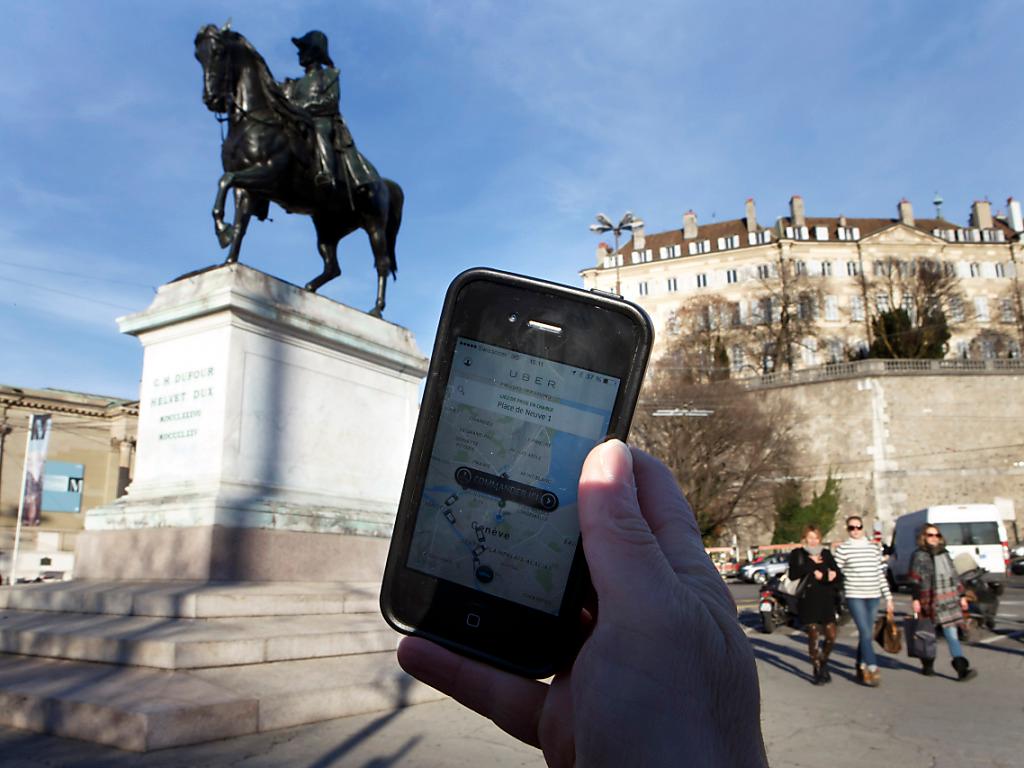This content was published on Feb 01, 2023 – 10:58 AM
(Keystone-ATS)
MITC Mobility, which employs a large part of Uber drivers in Geneva, can continue to operate in the canton for the time being. The company got super temporary measures. The state had recently banned his activities.
At the beginning of December, the cantonal employment office ordered the company to comply with the Federal Law on Recruitment and Secondment of Employees (LC). In a sign of non-compliance with the notification, OCE notified in mid-January by letter to MITC to cease its activities, a company spokesperson told Keystone-ATS yesterday evening, confirming a news from French radio and television RTS.
Director of MITC Mobility, Karim Sahnine, explained that the company appealed to the Cantonal Court and obtained provisional measures (i.e. urgent and temporary, taken without going into the merits and without listening to the parties involved) which foresee the suspensive effect and therefore, for the time being, allow it to continue at work.
The story in detail
The spokesperson explained to Keystone-ATS that at a meeting between OCE and the company in mid-December, the canton asked MITC Mobility to comply with the LC by early January. “Objectively speaking, MITC hasn’t had time to do that.”
The company does not understand the decision of the authorities. A spokesperson for MITC Mobility stressed the application of a perfectly legal contract under Swiss law. “But the legal framework is not recognized by the OCE. We are facing a difference of interpretation.”
MITC in particular does not understand the enforcement of business bans. He then appealed the ruling to the cantonal court. Contact was made, yesterday evening, of the cantonal Economics and Employment Department, headed by State Councilor Fabian Fischer (The Greens), up to this point.
LC compliance poses several problems for the company. In particular, according to this regulation, MITC must guarantee a minimum number of hours for all its drivers. According to Sahnine, there is a distinct lack of flexibility.
Possible national repercussions
In the long term, if the Federal Supreme Court (TF) rules against the practice of MITC, there could be an impact on the activity of all drivers using the Uber app in Switzerland. In Geneva, Sahnine told RTS “450 people may find themselves out of work. The decision to close this business overnight is a serious matter for the state.”
Uber underestimates. He indicated to Keystone-ATS that OCE’s decision had no impact on its operations outside of Geneva. The company says that it was “surprised by the recent decision” of the OCE and above all “by the fact that management has decided once again to revoke the suspensive effect” which was restored in 2019 in a similar case linked to Uber Eats.
Uber is a company – the parent company is headquartered in San Francisco (California, USA) – that provides a private car transportation service through a mobile app that connects passengers and drivers directly. It is considered one of the main representatives of the so-called cooperative economy. Uber Eats is the company’s platform that handles online food ordering and delivery.
Call for cooperation
In Geneva, since June 2022, Uber has been cooperating with third-party chauffeur-driven companies in order to meet the needs of the Commercial Police Service and the Fight Against Undeclared Work (PCTN). In recent months, the company said it has “cooperated closely with many Geneva authorities on a variety of issues” and has “worked tirelessly to show its willingness” to find “common solutions”.
“We hope to continue this constructive exchange also with regard to our partner companies,” the multinational added. Uber has been granted the right to operate temporarily in Geneva until March 31. By that date, the company should have resolved past disputes with its drivers in Geneva. In particular, he must have paid an advance for arrears of social security contributions pending their exact value and billing by the competent social insurance companies.
The action derives from a decision by the task force according to which Uber is considered a transportation company and drivers who work with its app must be considered employees rather than independent workers, the multinational claims instead.

“Internet trailblazer. Travelaholic. Passionate social media evangelist. Tv advocate.”







More Stories
US, Business Activity Worses in April, Inflation Measures Mixed Reuters
Salary bonus, check the amount carefully in May: these days the wage doubles
Super Bonus, Giancarlo Giorgetti: Appropriations of $160.5 billion, 7.4% deficit does not affect the deficit